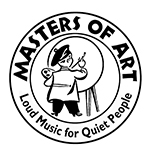18th March 2019
Travel in India is best accomplished, if the distances involved are not too great, by the three-wheel motorised rickshaw known as the tuk-tuk. They have a windscreen, a roof and a back, but no sides, and, as a passenger, the sights, sounds and smells of this wonderful place are up-close and personal. You are a participant, an authentic part of the spectacle of the street.
Indian drivers are bold, daring and assertive. They drive with élan and panache, slicing in front of each other with aggressive precision. (The Indian driver is highly skilled – or dead). The Indian words for ‘cutting people up’ on the road is probably just ‘driving’. The Indian driver, both male and female, sounds his or her horn continually. ‘Here I am!’, it announces. ‘Look out, I’m coming through!’ or just ‘Woopee!’ Yet all this apparently ruthless roadhoggery causes no anger or resentment. The mad traffic rushes onwards in an overwhelming atmosphere of tolerance and forbearance. We have always felt quite safe on Indian roads; the Shiva or Ganesha or Shirdi Sai Baba on the dashboard will see to that.
Tuk-tuk drivers are street-smart to an extraordinary degree, they know every inch of their town or city from boulevard to dank alleyway and, once you know where you’re going, and what the fare ought to be, you can get twenty minutes of fast, fascinating transportation for around £1.50.
The drivers come in all varieties, including plausible rogues who are extremely keen that you visit their ‘uncle’s’ emporium, or gentle, barefoot philosophers. Some drivers have excellent English and are as good as any professional guide. A recent week in Mysore was made memorable by one such paragon who organised our sightseeing with effortless professionalism. (Our thanks to Mr Lokesha, and his ‘Green City Ride’).
Over the years Fiona and I have had some remarkable tuk-tuk experiences. In Jaipur we were latched onto by a flamboyant young chancer whose routes around the city in ‘the fastest rickshaw in town’ were curiously punctuated by brief, unscheduled stops; at a chai stall, or a street corner where our driver would scurry from his cab to hold brief mysterious meetings. When the tuk-tuk developed engine problems, he opened the fuel tank and, fishing around inside, withdrew a package wrapped in plastic, whereupon the engine was restored to life. It was only at this point did we realise that we were providing excellent cover for his drug delivery round.
At a seaside resort on the West coast another young driver, who had taken us to-and-fro a couple of times before, picked us up one night and immediately headed in the opposite direction from the way we wanted to go. ‘Doon be crass! Doon be crass!’ he wailed. ‘You are my Mother and Father!’ We were contemplating our apparent kidnapping with some misgivings when he swerved off the road and onto the beach where crowds had gathered in the darkness for a religious festival.
Three huge temple elephants in golden armour stood guard as, lit by burning torches, Brahmin priests in loincloths repeatedly poured butter-ghee, milk and who-knows-what-else over figures of the Gods, which were then picked-up and rushed into the sea to be washed in the breakers before being returned for more anointing. Our driver was very pleased with himself as we took our darshan, and also, we realised, completely off-his-face on bhang or something similar.
On our recent trip to Madurai, we hailed a rickshaw to return to the hotel from one of the city’s many rooftop restaurants. He was already waiting for someone, but another driver he was talking to seemed eager to oblige. He was a tiny old man who waved his hands in the air and cackled at us maniacally, revealing a startling lack of teeth. We climbed aboard his rickshaw rather apprehensively, he revved his engine, and took off like a rocket. Tuk-tuks in Madurai are fueled with LPG but this one must have had nitro dragster fuel in the tank. Hunched over the handlebars, cackling loudly and occasionally waving one hand in the air, he drove at enormous speed, overtaking everything and frequently on the wrong side of the road. At times we must have been going at 70mph, when Indian traffic seldom exceeds 50mph. White knuckled, we reached our destination in exactly half the time it usually took, and the old man cackled happily over his £2.00 fare.
In all but the greatest Indian cities, cars do not predominate. The street is owned by the two and three-wheelers. In the evening, when everyone is on the move, thousands of motorbikes, scooters and tuk-tuks dance and weave around the crowded, oversized buses which are gashed, seamed and welded like something out of Mad Max. Motor rickshaws, licensed to carry two passengers plus driver, might have a dozen or more people crammed inside. Cows, wandering free and unconcerned amid the heaviest traffic, must be negotiated, and there is a sprinkling of sturdy sit-up-and-beg bicycles (which all feature eminently sensible rear-wheel stands that leave the bike firmly upright rather than balancing on a little spike).
Women and girls ride powerful scooters, and are as dashing and daring drivers as the men, who mostly ride motorbikes, including gleaming and magnificently retro Royal Enfields. So many bikes; with two-up, three-up, four-up; whole families out for the evening on the family Kawasaki, mother in jeweled sari, sitting side-saddle at the rear, the fluttering skirts of the sari perilously close to the rear wheels, then maybe eldest daughter; mother and daughter’s blue-black hair in ‘french braids’ entwined with coils of Jasmine, floating in the wind, then comes proud father, his hair styled in an immaculate quiff, then youngest son standing at the front grasping the handlebars. Helmets? Who would want to wear something so hot and uncomfortable and crushing of the hairdo?
And this whole river of blazing lights, incredible cacophony of noise, and overwhelming engine fumes is hurtling onward into the warm, soft, black-velvet Indian night, and the sound rises and echoes amid the colossal towers of the temples and becomes one great metallic, resonant ‘OM’.


